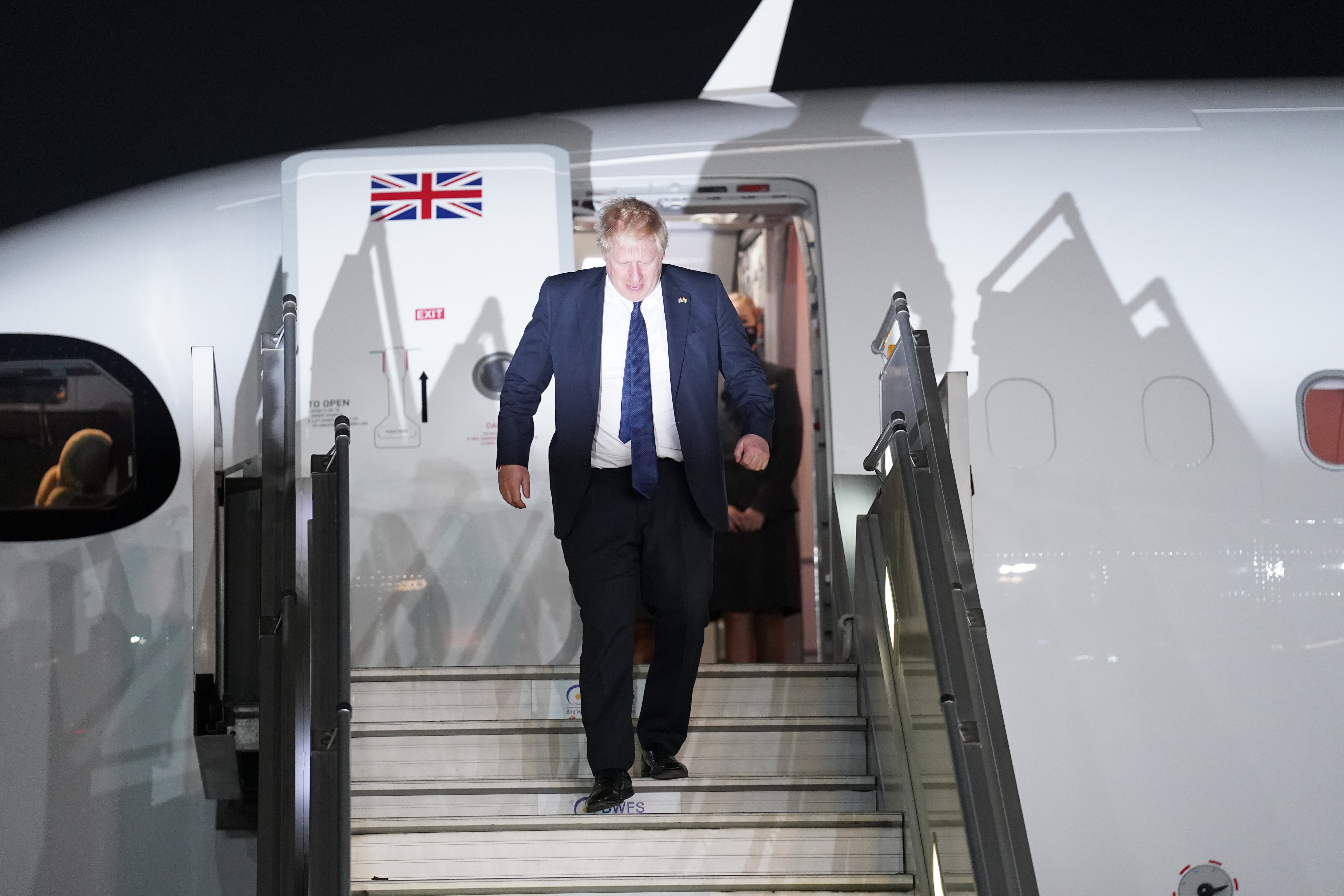What is the latest partygate investigation and what powers does it have?
A motion passed on Thursday saw Boris Johnson referred to the Privileges Committee for a probe into whether he misled MPs.

Your support helps us to tell the story
From reproductive rights to climate change to Big Tech, The Independent is on the ground when the story is developing. Whether it's investigating the financials of Elon Musk's pro-Trump PAC or producing our latest documentary, 'The A Word', which shines a light on the American women fighting for reproductive rights, we know how important it is to parse out the facts from the messaging.
At such a critical moment in US history, we need reporters on the ground. Your donation allows us to keep sending journalists to speak to both sides of the story.
The Independent is trusted by Americans across the entire political spectrum. And unlike many other quality news outlets, we choose not to lock Americans out of our reporting and analysis with paywalls. We believe quality journalism should be available to everyone, paid for by those who can afford it.
Your support makes all the difference.The Prime Minister will be subject to another investigation over partygate, this time about claims he misled MPs when offering reassurances that No 10 did not breach Covid regulations.
Here is a look at what the parliamentary probe will entail, the sanctions at its disposal and who else is investigating allegations of lockdown breaches in Downing Street and Whitehall.
– What happened on Thursday in the House of Commons?
A Labour motion passed unopposed – meaning it did not need to be voted on by MPs – which suggested the Prime Minister might have lied to Parliament when he said coronavirus laws were followed in No 10.
Since making those comments, Mr Johnson has been fined by police for breaching pandemic regulations during his own birthday bash in June 2020, causing MPs to question whether he misled them in past statements.
– So where has this mention of an investigation come from?
The motion had two parts.
The first was that, if passed, the Commons believed Mr Johnson may have made comments that amounted to “misleading the House”.
The second part said the Conservative Party leader should be referred to the Privileges Committee to consider whether his “conduct amounted to a contempt of the House”.
– What is the Privileges Committee?
The committee, made up of seven MPs – four Conservative, two Labour and one SNP – investigate matters of contempt which are referred to it by the Commons.
It is chaired by Labour MP Chris Bryant, although he has recused himself “from any consideration” of the Prime Minister’s behaviour, having been vocally critical of Mr Johnson’s in the media.
Instead, the committee will elect a new chair to spearhead the PM investigation.
– What powers does the committee have?
The body has wide-ranging powers to investigate whether the Prime Minister intentionally misled Parliament – a breach of the ministerial code that has traditionally been a resignation issue.
The MPs can compel the release of reports, documents and photos related to the party allegations in their bid to determine whether Mr Johnson knew about the potential rule-breaking.
Their probe could see them handed access to a report by senior civil servant Sue Gray into the goings-on in Government during the lockdowns and the hundreds of images said to have been handed to investigating police.
– What sanctions could the committee impose on Mr Johnson?
The committee, which has a Tory majority, has the power to recommend he make a fresh apology or even suspend the Prime Minister from Parliament if it finds he did lie to MPs.
Mr Bryant told Channel 4 News: “They can either force him to make a new apology or they could suspend him from the House for one, two, three or even 10, 15, 20 days.
“And if it is more than 10 days, then we would have a recall petition in his constituency where, if 10% of his constituency wanted him to be thrown out, he’d be thrown out.
“It is about as high-risk as it can go.”
– When will the investigation take place?
The wording of the motion passed on Thursday makes clear the Privileges Committee investigation will not start until the Metropolitan Police inquiry into alleged rule-breaking at the heart of Government has concluded.
– Doesn’t this come on top of other investigations into possible No 10 lockdown parties?
Yes.
Scotland Yard is currently investigating 12 gatherings at the heart of Government and has already issued more than 50 fixed-penalty notices (FPNs) as part of Operation Hillman.
Mr Johnson submitted a questionnaire to officers as part of their investigation, with it reported that he was in attendance at half the events being looked at.
Cabinet Office official Sue Gray has conducted her own review into the allegations, with Mr Johnson reported to have also spoken to her as part of the fact-finding mission.
– When will both those investigations be finalised or published?
It is hard to say for certain, but the Met has said it will not announce any more fines until after the local elections on May 5.
As for Ms Gray, she has published an interim report with some findings but is waiting until the police have concluded their inquiries before publishing the full document.
The publication of her review was put on ice in late January after the Met declared they would be investigating claims of parties held during lockdown in Downing Street.
Scotland Yard’s latest announcement opens the door for the police to wrap up its probe in time for after polling day, with a swathe of FPNs likely to follow.
It would also allow Ms Gray finally to put her partygate report into the public domain after a lengthy delay.